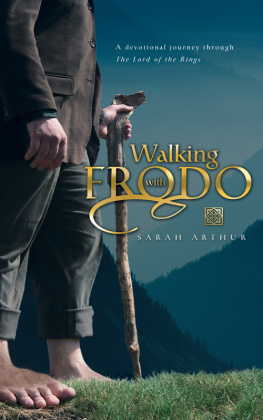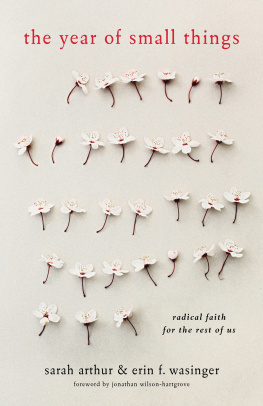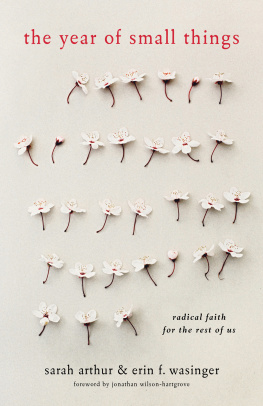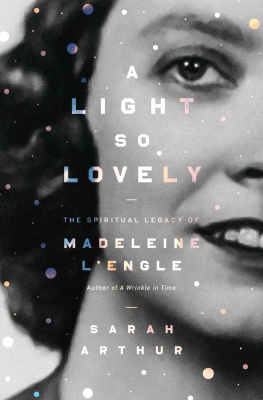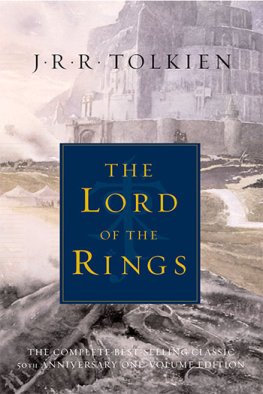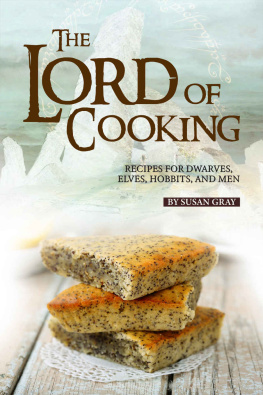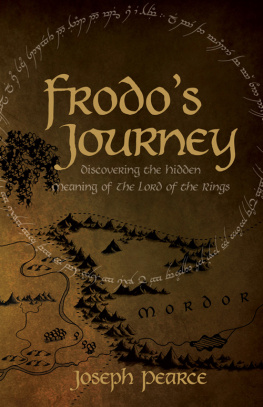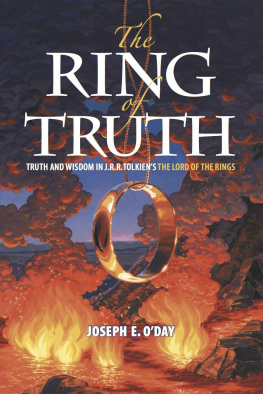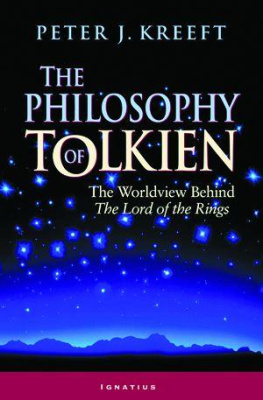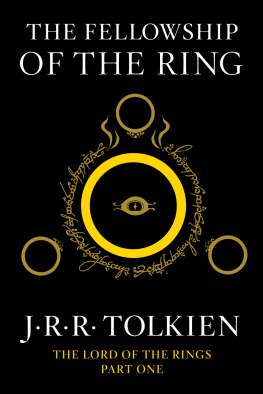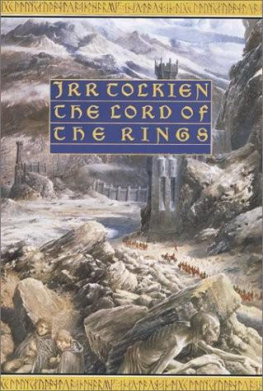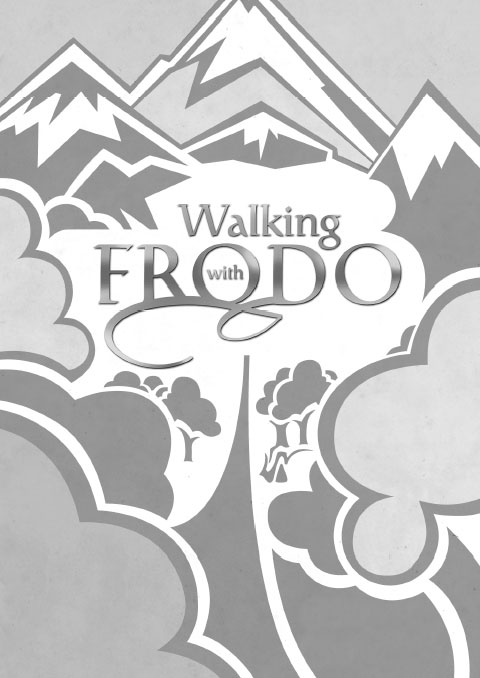
Visit Tyndales exciting Web site at www.tyndale.com
Visit www.saraharthur.com to learn more about Sarah Arthur
Copyright 2003 by Sarah Arthur. All rights reserved.
Edited by Erin Keeley Marshall
Designed by Luke Daab
All Scripture quotations are taken from the HOLY BIBLE: NEW INTERNATIONAL VERSION. NIV. Copyright 1973, 1978, 1984 by International Bible Society. Used by permission of Zondervan.
The NIV and New International Version trademarks are registered in the United States Patent and Trademark Office by International Bible Society.
In the United Kingdom, used by permission of Hodder & Stoughton Limited. All rights reserved.
NIV is a registered trademark of International Bible Society. UK trademark number 1448790.
Library of Congress Cataloging-in-Publication Data
Arthur, Sarah.
Walking with Frodo : a devotional journey through The lord of the rings / Sarah Arthur.
p. cm.
Includes bibliographical references.
ISBN 0-8423-8554-1
1. Tolkien, J. R. R. (John Ronald Reuel), date. Lord of the rings. 2. Christianity and literatureEnglandHistory20th century. 3. Middle Earth (Imaginary place)Religious aspectsChristianity. 4. Tolkien, J. R. R. (John Ronald Reuel), dateReligion. 5. Fantasy fiction, EnglishReligious aspectsChristianity. 6. Middle Earth (Imaginary place)Devotional literature. 7. Fantasy fiction, EnglishDevotional literature.
I. Title.
PR6039.O32 L6323 2003
823.912dc21 2003013922
Printed in the United States of America
08 07 06 05 04
11 10 9 8 7 6 5
For Grandpa, a real-life Sam Gamgee, without
whom Grandma wouldnt have got far
In writing this book I have been wearing two hats.
The first is the hat of literary criticism, which I have worn rather loosely. Among its guidelines is the generally understood premise that The Lord of the Rings is not an allegorywith which I heartily agree, in deference to Tolkien himself. Another premise is that it is not a Christian storywith which I have some dispute. Certainly Tolkiens story is no more overtly Christian than the tree in my front yard; but, like the tree, its very essence points to both a Creator and a Savior, without the need to say so in plain English (or Elvish, for that matter). Tolkien was a Christian. The worldview of any author is evident in his works. The Lord of the Rings is no exception.
My other hat is that of a teacher, which is really the hat of a student turned around backward. The way we learn best is when someone takes the teachable moments in our culture and uses those moments to drive home timeless truths about life. Good teachers do this for us because they know that if we are excited about somethingif our brains and emotions and imaginations are already fired up and engagedthen we are much more inclined to take ownership of the lesson once its taught. In fact, the lesson basically teaches itself. We realize, Oh. I guess I knew that already, though we didnt have a name for it before. Now it rings true.
So it is with The Lord of the Rings. To my amazement, my media-saturated generation has taken hold of Tolkiens gift to the worlda treasure both timeless and pricelessand made it our own.
Frodos story has been so woven into our cultural consciousness that one could argue it is nearly inseparable from our coming of age. And, to my delight as a Christian educator, the story lends itself effortlessly to lessons about the spiritual journey, to the choices we face every day.
Tolkien asserted that his is a story which is largely about motives, a point which becomes harder and harder to miss the more one gets into the minds of his characters. What motivates his characters to make the choices they do: devotion to self or devotion to others? To examine this, I have taken nine pairs of choices and used them as windows into the life of the soul. Examples from the storys characters illustrate the devotion, while the questions that follow seek to apply what weve learned to the choices we make in our everyday world.
I take both my hats off to the many people who helped make this book happen, from my own dear husband and family to my friends in the world of writing and publishing. Without your support, this wonderful adventure never would have gotten past page one.
And to my readers I say, as Gandalf said to Pippin, If you have walked all these days with closed ears and mind asleep, wake up now! Frodo is leaving the front door of Bag End. Will you walk with him?
Sarah Arthur
Fantasy literature is suddenly cool, thanks to The Lord of the Rings. And were not talking about the fluffy stuff, either (in which Benji the Brave raises the Horn of Ippydoo to call forth the god Mork during the Age before People Knew How to Tell Time). No, we want the good stuff. We want cosmic battles between the forces of light and darkness, battles in which all the peace-loving people of the earth must band together or be lost to oblivion. We want interesting characters who face the threat of annihilation bravelyand die well. We want suspense, action, romance, and hard-won happy endings.
If were honest, we want life itself to be that way. Deep down we suspect that it is. But on the surface, it looks well fluffy. For example, those are not Orcs approaching us in the cafeteria, telling us were sitting at their table. Theyre just big guys in jerseys whose grandmothers probably love them dearly and wish they would brush their teeth more often. Those are not Wizards teaching our advanced algebra classes. Theyre just middle-aged folks in street clothes whose biggest battle with the forces of darkness is trying to get us to memorize the quadratic formula. We ourselves are not Elves, or Dwarves, or even Hobbits (although some of us are still growing into our feet). Were just ordinary people who want life to be more than just homework and dating and going somewhere warm for spring break.
But dont be fooled. Life is more than fluff. Underneath the crust of our existence is a battle between the forces of good and evil, a battle that began at the dawn of time and will continue to the last age of the world. We catch glimpses of that evil whenever our parents start screaming at each other. Or whenever a friend goes off the deep end. Or whenever a temptation becomes too strong to resist. We strongly suspect it when a relative calls to say hes dying of cancer. And we come face-to-face with it when commercial airplanes filled with passengers are deliberately flown into skyscrapers and life as we know it changes forever.
Yet we catch glimpses of good, too: the kindness of a stranger, a heartening victory over some addiction, the little bits of grace or healing or laughter in our darkest moments. We are able to look back on those times and discover thathad things not happened in just a certain way, bad as they werethe whole situation would have been a lot worse. And even if we fail to see it just yeteven if the future looks just as grim as the pastwe have the promise that the Author of the Story has planned a happy ending beyond our wildest hopes.
This is the profound truth behind The Lord of the Rings. This is what makes it the good stuff. J. R. R. Tolkien was not trying to tell us that our schoolmates are actually Orcs in disguise or that our teachers fight Balrogs in their spare time. In fact, he was just trying to tell us a good story. But Tolkien did have a set of beliefs that colored and shaped his story and gave it meaning (every writer does). Thats where

